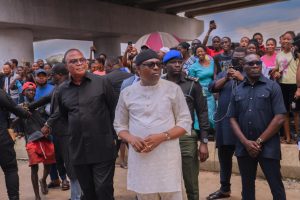
A former gubernatorial candidate in Rivers State and leader of the Princewill Political Associates, PPA, Prince Tonye Princewill has said that Nigerian leaders may have failed to deliver good governance because they know little or nothing about what it entails.
Speaking at a conference in Port Harcourt under the theme- Advancing Politics and Governance for Sustainable Development in Africa-Princewill whose leadership in business spans tourism, entertainment, hospitality, oil and gas as well as politics, said it was unfortunate that Africa’s governance narrative was currently at crossroads.

“Our continent is blessed beyond measure — in people, in resources, and in potential. Yet, for too long, the story of Africa has been framed around paradoxes: abundance coexisting with poverty; progress shadowed by fragility; potential constrained by governance gaps.
“It is increasingly clear that sustainable development cannot be achieved merely by economic growth or natural resource endowment. It depends — fundamentally — on the quality of politics and the strength of governance.
“When politics is reduced to competition for power rather than a platform for service, progress falters. When governance becomes transactional instead of transformational, development becomes a mirage. But when politics is guided by vision, values, and verifiable impact — and when governance is rooted in transparency, inclusion, and accountability — nations rise,” he said.


Princewill, an alumnus of the University of Port Harcourt, who has presented himself a number of times for election as governor in Rivers State, noted that what Africans needed were not excuses from their leaders, but results.
According to him, “Our universities are producing knowledge, our civil societies are driving accountability, and our youth are challenging old paradigms. This convergence of energy — intellectual, political, and civic — is the foundation of a new Africa.
“This conference is not just another academic exercise. It is a call to reimagine governance as the engine of sustainable development. A space where scholars, policymakers, and civil society can align evidence with ethics, and vision with action.
“Our goal must be to move beyond diagnosing Africa’s challenges — towards designing solutions that are actionable, inclusive, and measurable. The test of our deliberations will not be how eloquent our papers sound, but how impactful our outcomes become.
“As we engage over the coming days, let us remember that leadership is not a title; it is a trust. Governance is not a slogan; it is a system. And development is not an event; it is a process built on courage, collaboration, and consistency.”






